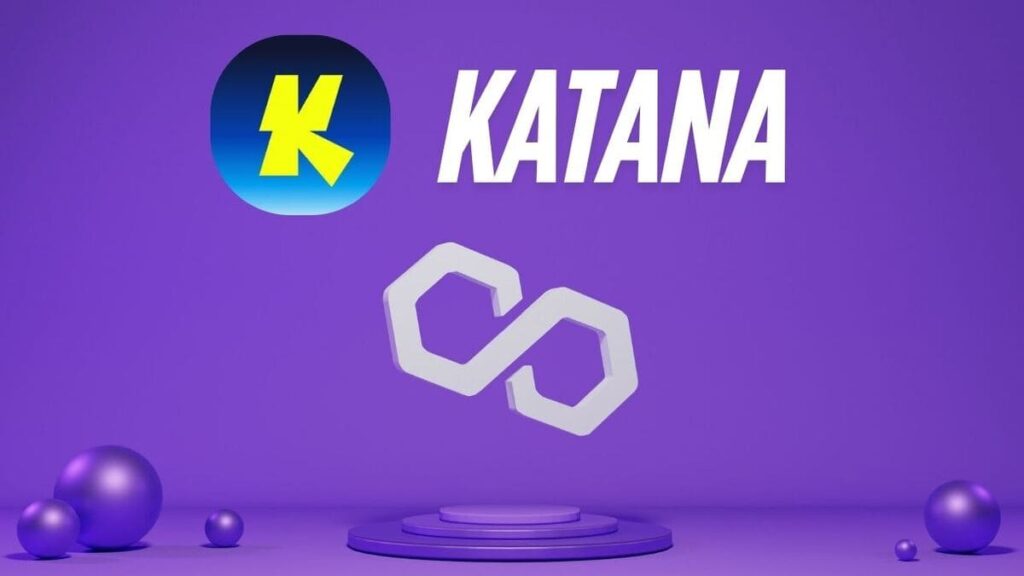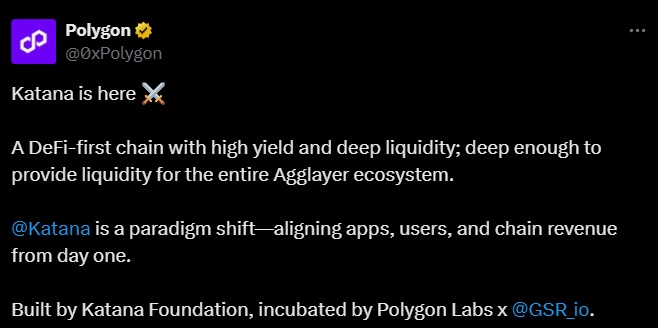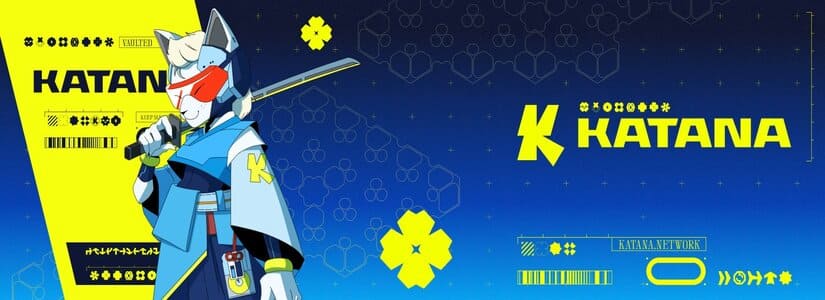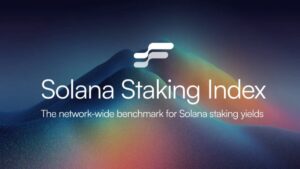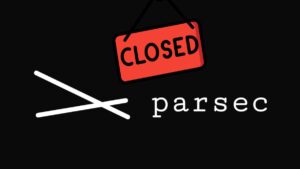TL;DR
- Polygon Labs and GSR launched Katana, a DeFi blockchain that concentrates liquidity and delivers optimized yields on a private mainnet.
- Deposits in ETH, USDC, USDT, and WBTC during this initial phase will receive KAT tokens, unlockable within a maximum of nine months.
- Katana runs on cdk-opgeth, connects to Polygon’s Agglayer, and will integrate Morpho, Sushi, Vertex, and cross-chain assets like XRP and SOL.
Polygon Labs and GSR have just launched Katana, a new blockchain designed for the DeFi ecosystem, now live on a private mainnet.
The network concentrates liquidity into a select group of applications, optimizing yields and reducing the fragmentation typically seen across DeFi platforms. During this initial stage, users can deposit ETH, USDC, USDT, or WBTC and receive KAT tokens, which will unlock within a maximum of nine months.
Katana operates on a customized version of OP Stack called cdk-opgeth and connects to Polygon’s Agglayer, a zero-knowledge proof solution developed by Succinct Labs. This allows the network to validate transactions without exposing sensitive data and ensures optimal operating efficiency. Polygon also incubated the project through its Agglayer Breakout program, targeting DeFi applications in need of controlled, liquidity-optimized environments.
Katana’s initial ecosystem includes adapted versions of Morpho, Sushi, and Vertex, along with integrations for stablecoins like AUSD, Lombard’s LBTC, and Ether.Fi’s weETH. It also features Universal, a cross-chain platform offering access to non-native assets such as XRP, SOL, and SUI. This structure aims to reduce price slippage and stabilize borrowing rates and returns — a challenge for traditional DeFi platforms.
Katana Aims to End Liquidity Fragmentation
The initiative is supported by the newly established Katana Foundation, a nonprofit tasked with coordinating partnerships with projects like Conduit and Chainlink. Meanwhile, GSR will handle liquidity management, cross-chain operations, and contribute its market development expertise.
Katana’s governance model will let users lock up KAT tokens in exchange for veKAT, a governance token based on an escrow system. This token will grant voting rights on key decisions regarding the network’s management and direction. A public mainnet launch is expected in June.
Polygon Labs emphasized that Katana was created to address the inefficiencies of fragmented DeFi environments, channeling liquidity and maximizing real, sustainable yields for users and investors. The goal is to build a durable ecosystem where liquidity remains steady and yield-generating tools behave predictably


